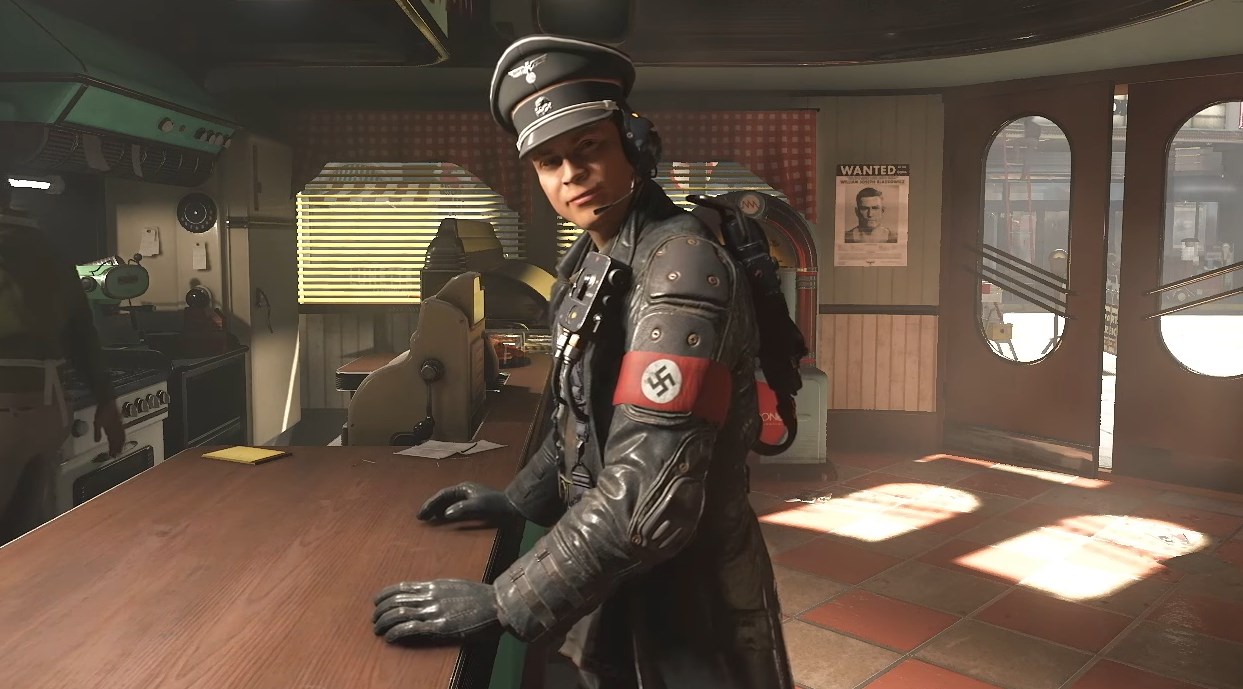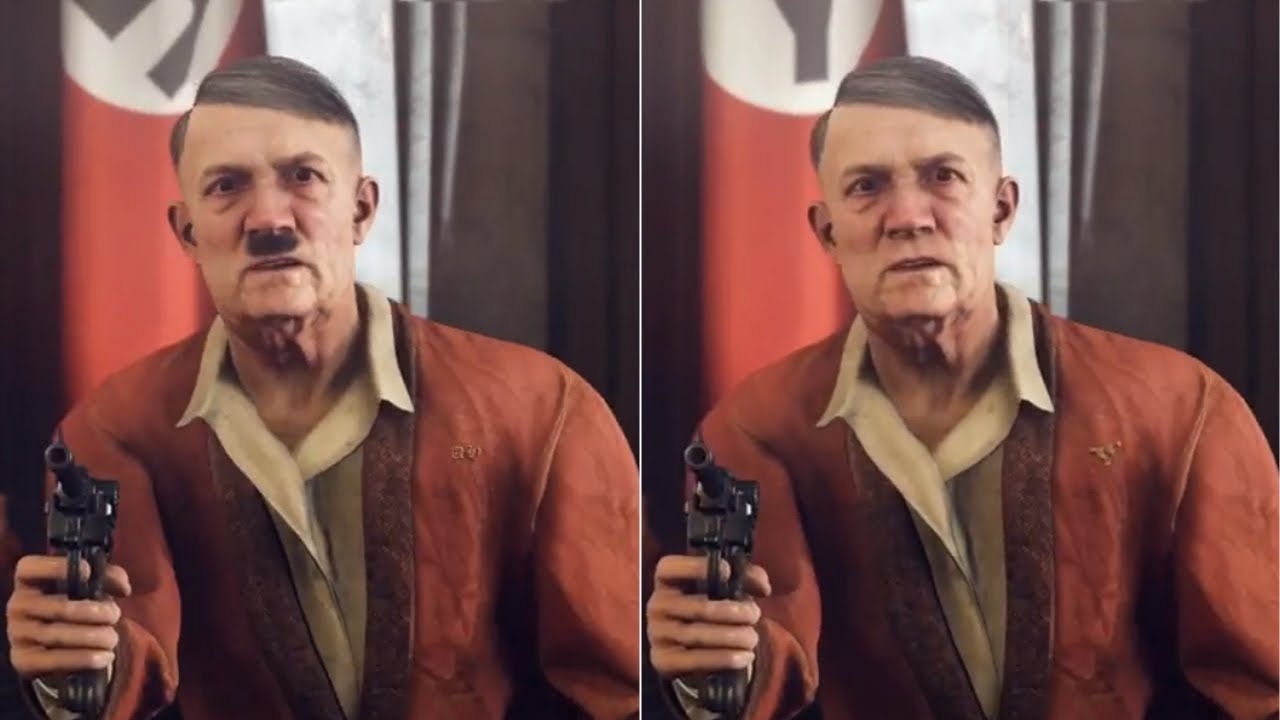Germany lifts ban on swastikas in videogames
Games will now be given the same consideration as movies when determining allowable content.

The swastika is one of the most infamous symbols in human history: The emblem of the Third Reich, the murderous Nazi regime that razed Europe and sparked the deaths of 60 million people in the mid-20th century. Because of that horrific history, its use is largely prohibited in Germany; the specifics are complex, but the upshot is that videogames, even those that are about or set in the war, are forbidden from dislaying the symbol at all, even when it's quite clearly being used to depict the bad guys.
The German version of Wolfenstein 2: The New Colossus, for instance, features no swastikas or other Nazi imagery, makes no references to Hitler as the Fuhrer, and even does away with his notorious mustache. But that situation is about to change, as Germany's game rating agency USK announced today [Google translation] that videogames will now be given the same consideration as movies with regard to allowable content—which means that, as works of art, they are exempt from the ban.
That doesn't necessarily mean all swastikas, all the time, but a hard "no" will no longer be the default. "Through the change in the interpretation of the law, games that critically look at current affairs can for the first time be given a USK age rating," USK managing director Elisabeth Secker told CTV. "This has long been the case for films and with regards to the freedom of the arts, this is now rightly also the case with computer and videogames."

The German Games Industry Association issued a statement welcoming the change, saying that it has "long campaigned for games to finally be permitted to play an equal role in social discourse, without exception."
"Computer and videogames have been recognized as a cultural medium for many years now, and this latest decision consistently cements that recognition in terms of the use of unconstitutional symbols as well," managing director Felix Falk said. "We in the games industry are concerned about the tendencies we see towards racism, anti-semitism and discrimination. We are strongly committed to an open, inclusive society, to the values laid out in the German constitution, and to Germany’s historical responsibility."
"Many games produced by creative, dedicated developers address sensitive topics such as the Nazi era in Germany, and they do so in a responsible way that encourages reflection and critical thinking. The interactive nature of games makes them uniquely qualified to spark contemplation and debate, and they reach younger generations like no other medium can."
The association explained that the USK will now examine games on a case-by-case basis to see whether Germany's "social adequacy clause," which allows the use of symbols belonging to unconstitutional organizations—the Nazis—"as long as they serve an artistic or scientific purpose, or depict current or historical events." That law hasn't changed, but its interpretation by the Supreme Youth Protection Authority of the Federal States—or Oberste Landesjugendbehörde, as the locals call it—has, and now places games "on an equal footing with other forms of media."
Keep up to date with the most important stories and the best deals, as picked by the PC Gamer team.
It's interesting, and laudable, that the German game industry sees the inclusion of swastikas as not just a sop to "historical accuracy," but relevant to the current-day struggle against racism, antisemitism, and authoritarianism. Videogames are as culturally relevant in contemporary society as movies and books, and they have a role to play in (hopefully) ensuring that humanity doesn't repeat history's most horrific mistakes—particularly, as Falk noted, for younger generations.
To celebrate the updated interpretation of Germany's swastika law, here are 21 GIFs of Nazis getting owned in Wolfenstein 2: The New Colossus for your viewing pleasure.

Andy has been gaming on PCs from the very beginning, starting as a youngster with text adventures and primitive action games on a cassette-based TRS80. From there he graduated to the glory days of Sierra Online adventures and Microprose sims, ran a local BBS, learned how to build PCs, and developed a longstanding love of RPGs, immersive sims, and shooters. He began writing videogame news in 2007 for The Escapist and somehow managed to avoid getting fired until 2014, when he joined the storied ranks of PC Gamer. He covers all aspects of the industry, from new game announcements and patch notes to legal disputes, Twitch beefs, esports, and Henry Cavill. Lots of Henry Cavill.

